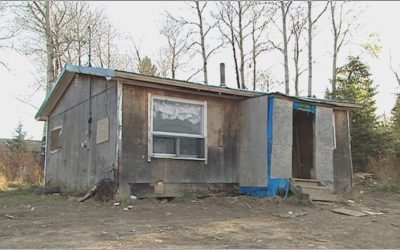"Look at that," said the traveller as he motored out of Winnipeg. "The gas prices are cheaper outside the city. We’re being ripped off." "There’re more people inside the city, and more competition," puzzled his wife. "Shouldn’t the prices be cheaper there?" "It all comes from the same refinery anyway," explained her husband. "They’re just ripping us off."
This conversation, a true story, reflects the usual public reaction to increased costs. Most people don’t understand how markets work and blame profit-seeking capitalists when prices rise.
The bad rap given to the gasoline industry offers emotional satisfaction but does nothing to explain the price difference. Fact is, gasoline prices in the exurbs that surround Winnipeg are always lower than those inside the City. The prosperity in this elegant ring of towns owes its existence to high property and business taxes inside Winnipeg’s boundary. Half-price property taxes and only nominal business taxes mean that the cost of doing business outside the City is way lower. That’s why their gas prices are a couple of cents a litre less.
But common-sense explanations rarely trump anti-business rhetoric. This spring, an Ontario Liberal MP gathered significant support for a Bill to stop gas companies from "fixing prices", despite regular assurances from the Competition Bureau that no such collusion has ever occurred. In June, when Petro-Canada announced a joint venture with a retailer in Québec and the Maritimes, the Bureau expressed "serious concerns" about corporate concentration at the gas pumps. In fact, this merger would simply put Petro-Can on a level national playing field with the other two giants, Shell and Esso.
Try as they might, these behemoths have never been able to wipe out the independent retailers always biting at their heels, who still supply 15 to 22% of the market in Canada, depending on the region. That’s down from about 30% in the 1980s, a consequence of "vertical integration", where the giants who combine refining, wholesaling and retailing are able to eliminate competitors by selling below the wholesale price.
Québec has outlawed this behaviour, as have 27 American states, a movement known as "fair price" legislation. But these restraints place a floor on the price, below which it is not allowed to fall. The result? Higher prices for consumers, because the price wars of the past become impossible. Unintended consequences rule when governments interfere with markets.
These intrusions can boomerang quite spectacularly. In California, gasoline prices shot up 40 cents a gallon this spring and prompted a state investigation into "price gouging". However, the real explanation for the price jumps appeared last Monday in the San Francisco Chronicle, courtesy of Frontier Centre academic advisor David Henderson, an economist and University of Winnipeg graduate.
Gas prices went up everywhere this spring, because world oil prices rose. California took such a heavy hit partly because two of its oil refineries went down for repairs after fires in February and March. The reason why companies didn’t bring in replacement supplies from neighbouring states is simple – they’re forbidden by law to do so. To protect air quality in the Los Angeles basin, the state requires futher refining, and it makes no sense for out-of-state retailers to retool their plants to meet a temporary shortage. In short, the California Air Quality Board’s regulations caused the extraordinary price jump.
Canadians are no strangers to meddling in gasoline markets. From Trudeau’s National Energy Policy in the 1970s to current plans to jack up prices 40 cents a litre to comply with "greenhouse gas" standards of the likely-to-fail Kyoto Accord, we diddle with the industry and cry foul over the results.
Taxes now amount to about half the cost of gasoline. After inflation is subtracted, we’re paying about the same price we did seventy years ago, when gas was a quarter a gallon.
So if you see prices start to climb, don’t call the Competition Bureau. Call your Member of Parliament.


